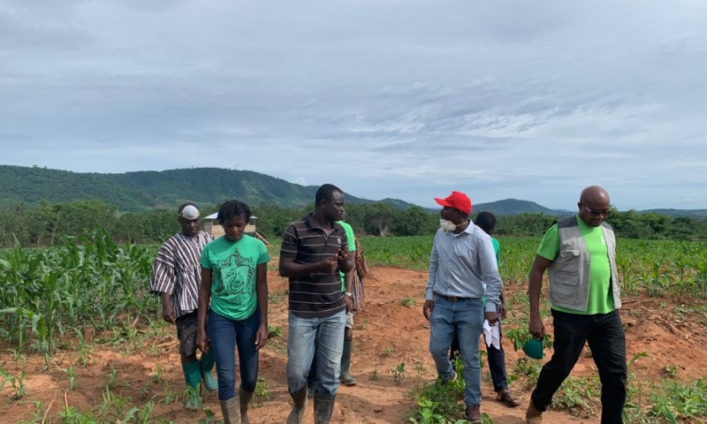
Audio By Carbonatix
Ghana is ranked 138 out of 189 countries in the Human Development Index for this year.
But that is an improvement over last year’s position of 142.
According to the report released today by the United Nations Development Programme (UNDP), the country shared the position with Southern African country, Eswatini [Swaziland].
Between 1990 and 2019, Ghana’s Human Development Index value increased by 31.4%.
Also, the Gross National Income per capita increased by about 127.6% during the same period.
During the period between 1990 and 2019, Ghana, Zimbabwe and Sao Tome and Principe experienced different degrees of progress toward increasing their Human Development Indices.
From Sub-Saharan Africa, Ghana is compared with Cameroon and Kenya, which have Human Development Indices ranked 153 and 143rd respectively.
Interestingly, 55.7% of adult women have reached at least a secondary level of education in the country compared to 71.6% of their male counterparts.
Norway, Switzerland and Ireland were ranked first, second and third respectively.
Resident Representative of the UNDP Ghana, Angela Lusigi, said “so for all those children who have been locked out of school, how can we make sure that they can access quality education, how can we learn the lessons we’ve learnt from COVID-19 to make sure that everyone can access health?”
“Even though, the Ghana CARES programme looks at businesses, it also prioritise investment and so forth. We have to carry everybody along and make sure we have investment in social infrastructure as well as hard and soft infrastructure,” she noted.
The Human Development Index is an average measure of basic human development achievements in a country.
It is a summary measure for assessing long-term progress in three basic dimensions of human development- a long and healthy life, access to knowledge and a decent standard of living.
Human Capital Index: Ghana ranks 130 in the world
Ghana was ranked 130 in the 2020 World Bank Human Capital Index released in October this year.
The country made little gains in the index which was extended to cover 174 countries.
According to the report, the government used data to effectively re-target school feeding efforts under the Ghana School Feeding Program (GSFP) after it found that the targeted population was not being reached. However, more need to be done to improve its rankings.
The nation fared better than South Africa and Nigeria.
Data from the national poverty statistics and food security and vulnerability analysis were combined to improve targeting and reduce leakages.
Latest Stories
-
Ghana is rising again – Mahama declares
4 hours -
Firefighters subdue blaze at Accra’s Tudu, officials warn of busy fire season ahead
5 hours -
New Year’s Luv FM Family Party in the park ends in grand style at Rattray park
5 hours -
Mahama targets digital schools, universal healthcare, and food self-sufficiency in 2026
5 hours -
Ghana’s global image boosted by our world-acclaimed reset agenda – Mahama
6 hours -
Full text: Mahama’s New Year message to the nation
6 hours -
The foundation is laid; now we accelerate and expand in 2026 – Mahama
6 hours -
There is no NPP, CPP nor NDC Ghana, only one Ghana – Mahama
6 hours -
Eduwatch praises education financing gains but warns delays, teacher gaps could derail reforms
6 hours -
Kusaal Wikimedians take local language online in 14-day digital campaign
7 hours -
Stop interfering in each other’s roles – Bole-Bamboi MP appeals to traditional rulers for peace
7 hours -
Playback: President Mahama addresses the nation in New Year message
8 hours -
Industrial and Commercial Workers’ Union call for strong work ethics, economic participation in 2026 new year message
10 hours -
Crossover Joy: Churches in Ghana welcome 2026 with fire and faith
10 hours -
Traffic chaos on Accra–Kumasi Highway leaves hundreds stranded as diversions gridlock
10 hours

